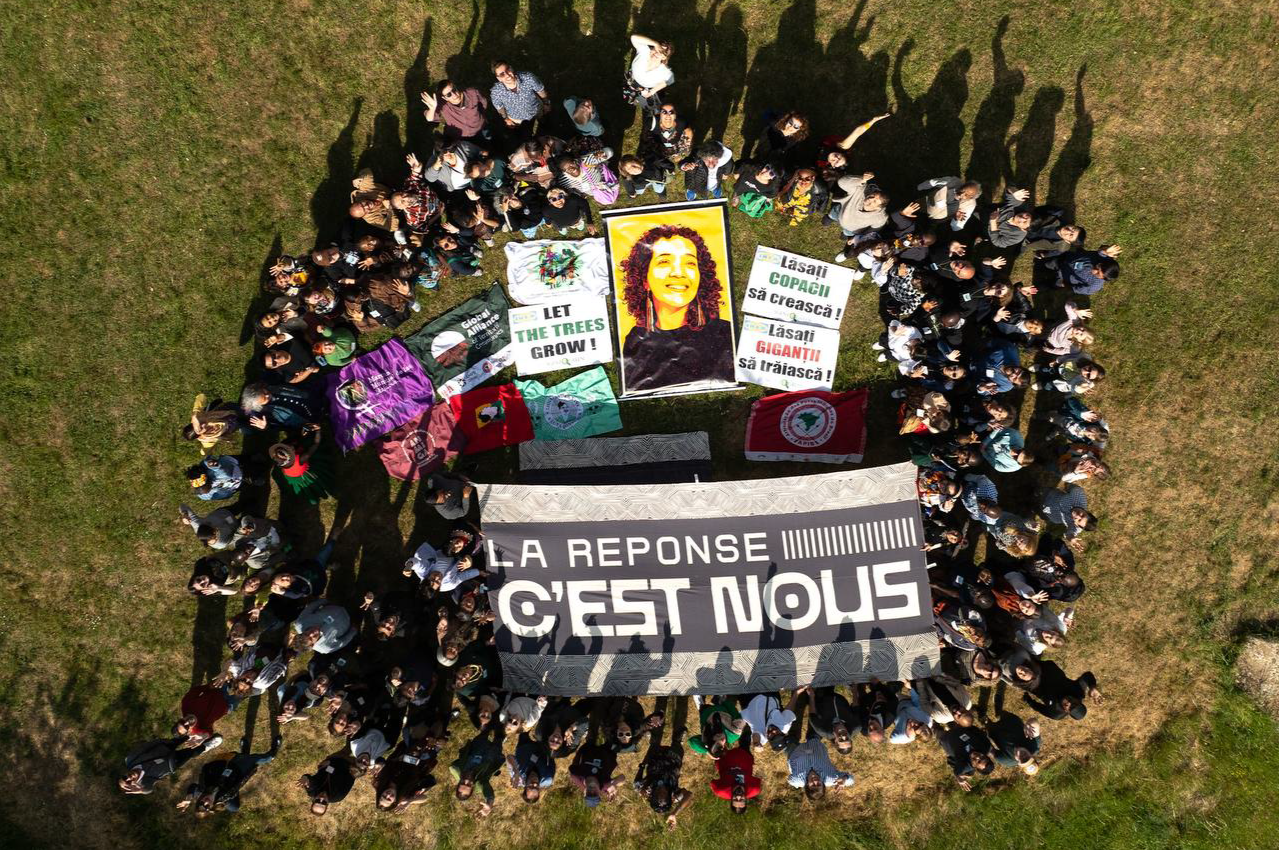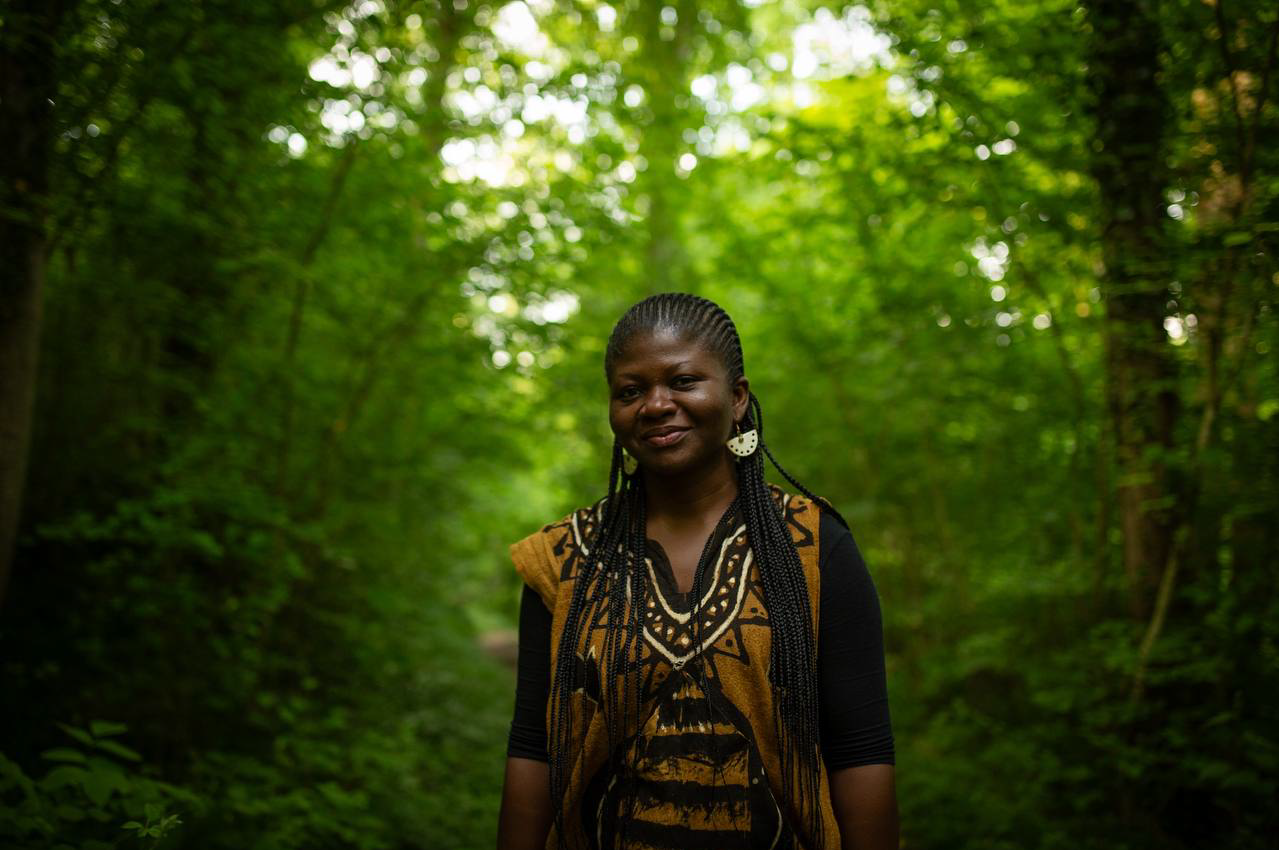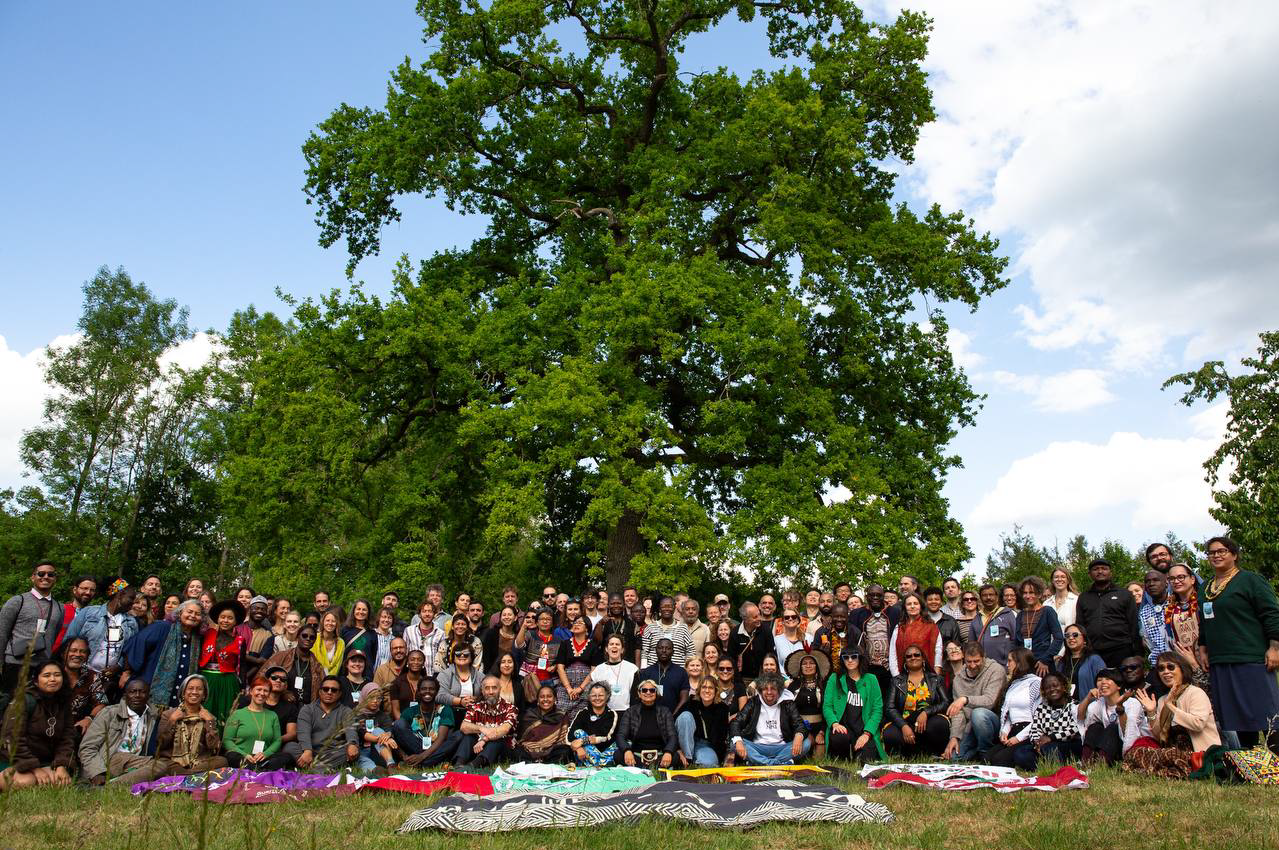June 24, 2025
by: Paula Alvarado
Chaussy, France – May 23, 2025 — As the climate crisis accelerates and threats to land defenders grow, more than 130 activists and forest defenders from 56 countries gathered in a French forest last week — not to lobby governments, but to build alliances and share strategies. Over three days in Chaussy, the Peoples for Forests Global Gathering broke from the norms of environmental summits, centering ancestral knowledge, cultural survival and the deep interconnection between diverse leaders and movements across the world, all united in their defense of forests. The gathering highlighted a shared struggle rooted in care and justice, weaving together territorial leadership, international campaigning and global solidarity.
The event opened not with speeches or banners, but silence. As the morning sun filtered through the trees, delegates walked slowly into the forest. It was a ritual and a declaration: forests are not commodities — they are kin.
This tone carried through the first day. Participants from all the continents spoke not just of resistance, but of rootedness — to land and communities.
“We do not speak of saving nature from a distance,” said Malaysian leader Celine Lim. “We are nature defending itself.”
In a global context where Indigenous voices are often invited to speak last — or symbolically — the gathering placed them at the centre. Not just as witnesses to forest destruction, but as protagonists in its defence.
Throughout the gathering, there were multiple points of convergence—not only of movements, but of teachings, tools, and visions. Each participant was invited to co-organize and take ownership of the experience, making the Gathering a truly collective creation. Eight parallel sessions explored themes ranging from safeguarding traditional knowledge, rights and supply chains to how to defund deforestation, greenwashing and strategic communication. These were not lecture halls, but circles of exchange—spaces animated by collaboration, care, and creativity, alive with multiple languages and a shared urgency for justice.

Each session was a ceremony in its own right.
“I left my country to live,” said Guatemalan Maya K’iche’ activist Lucía Ixchiu. “I left my territory to discover the world, to recognize that the Earth — our mother — is one. That all trees matter, all rivers matter, all biomes matter. We are the voices, the sons and daughters, the roots of Mother Earth. In this story, we are not victims. We are hope. We are joy. We are dignity.”
This affirmation of life — dignified, autonomous, collective — was present in every moment.
The final day held a global plenary focused on COP30. Participants brought forth proposals to align their messages and invite collaboration to jointly push for a climate agenda that centers forest communities.
Amidst the strategic debates, a critical insight became evident. As a climate and culture activist Samuel Rubin Vicens pointed out:
“The word ‘technology’ has been mentioned 33 times; ‘culture’ not once in any of the 29 COP final decisions. We have a lot of work to do. Because culture is heritage. Culture is adaptation. Article 7 of the Paris Agreement speaks of global adaptation — and that includes Indigenous knowledge and cultural legacy.”
This absence — of culture, of spirit — is exactly what Peoples for Forests pursued to restore.
Yet it wasn’t only about strategies. The Gathering made room for ceremony, grief, and spirit — none more powerful than the tribute to Marielle Ramires. The Brazilian activist, and co-founder of Mídia Ninja and many other movements passed away earlier this year. Her presence was invoked in a circle of music, tears, and resistance.

“I say that struggle is like grass,” Marielle once said. “You can cut it, uproot it, try to remove it. But it grows back in freedom. That is the rhythm of life.”
Her words became a refrain — a call to remember that resistance is not only about survival, but regeneration. Marielle’s life — joyful, fierce, radically tender — was honored not as something past, but as a force growing forward.
The Solutions Fair that followed was a celebration of what already exists: real, grounded, living alternatives. From seed-saving collectives to community media hubs, participants shared innovations rooted in place and resilience.
And then came the drums; the samba circle led by Brazilian ensemble Parioka brought everything full circle: grief and joy, loss and movement, struggle and celebration. Because singing and dancing are also acts of resistance — and of healing.
Peoples for Forests sought, among many goals to align the narrative ahead of COP30 — to reinsert culture, connection, and spiritual grounding into climate action. The Gathering closed not with conclusions, but with commitments. From the Amazon to the Himalayas, the Congo to the Andes passing through Europe, China and USA, the roots planted in Chaussy are growing — nourished by connection, conviction, and most of all, love for the Forests.
Keep following on social media: #PeoplesForForests
More at: www.peoplesforforests.org
